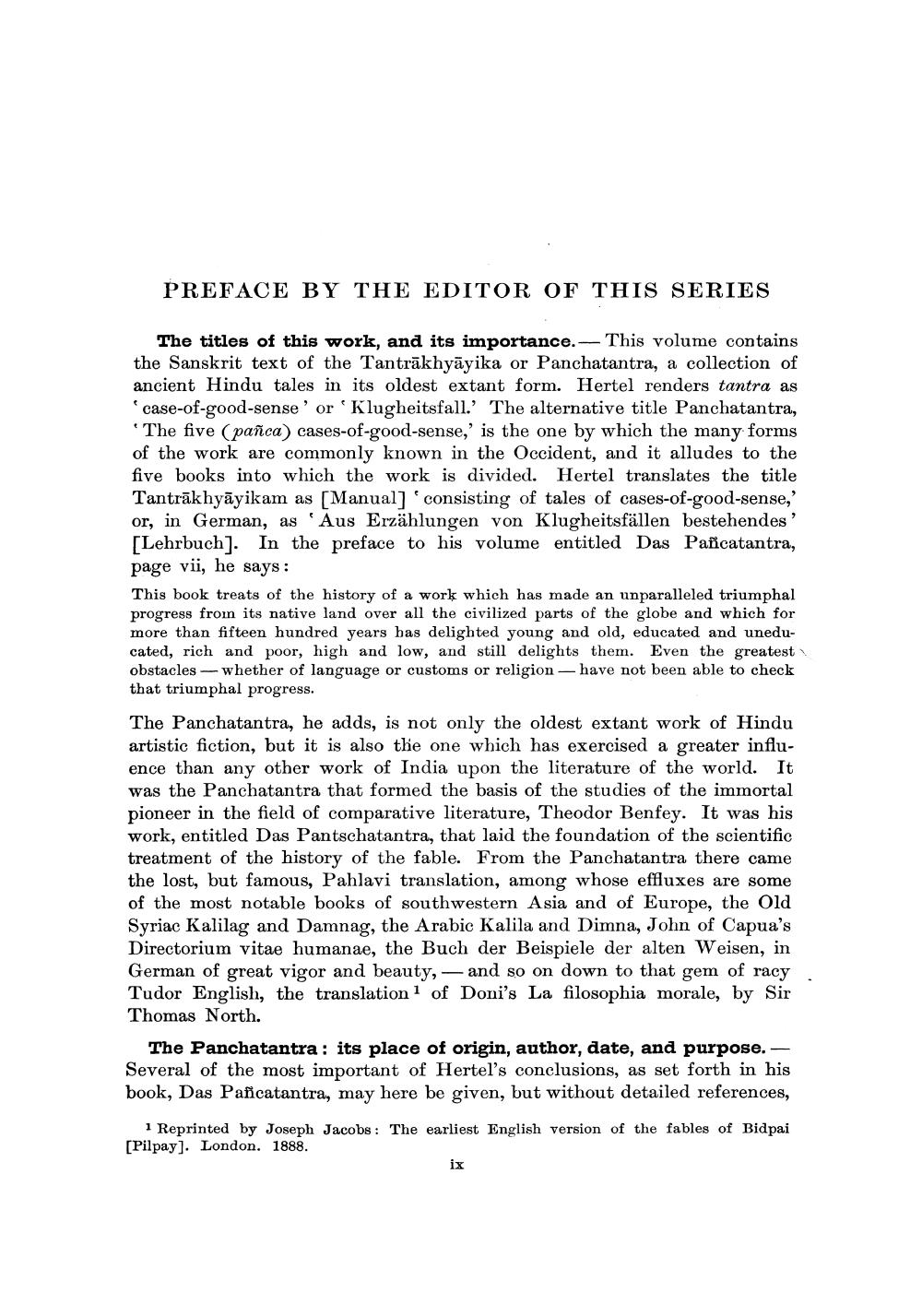________________
PREFACE BY THE EDITOR OF THIS SERIES
The titles of this work, and its importance. This volume contains the Sanskrit text of the Tantrākhyāyika or Panchatantra, a collection of ancient Hindu tales in its oldest extant form. Hertel renders tantra as
case-of-good-sense' or 'Klugheitsfall.' The alternative title Panchatantra, 'The five (pañca) cases-of-good-sense,' is the one by which the many forms of the work are commonly known in the Occident, and it alludes to the five books into which the work is divided. Hertel translates the title Tantrākhyāyikam as [Manual] 'consisting of tales of cases-of-good-sense,' or, in German, as 'Aus Erzählungen von Klugheitsfällen bestehendes [Lehrbuch). In the preface to his volume entitled Das Pañcatantra, page vii, he says: This book treats of the history of a work which has made an unparalleled triumphal progress from its native land over all the civilized parts of the globe and which for more than fifteen hundred years has delighted young and old, educated and uneducated, rich and poor, high and low, and still delights them. Even the greatest obstacles - whether of language or customs or religion - have not been able to check that triumphal progress. The Panchatantra, he adds, is not only the oldest extant work of Hindu artistic fiction, but it is also the one which has exercised a greater influence than any other work of India upon the literature of the world. It was the Panchatantra that formed the basis of the studies of the immortal pioneer in the field of comparative literature, Theodor Benfey. It was his work, entitled Das Pantschatantra, that laid the foundation of the scientific treatment of the history of the fable. From the Panchatantra there came the lost, but famous, Pahlavi translation, among whose effluxes are some of the most notable books of southwestern Asia and of Europe, the Old Syriac Kalilag and Damnag, the Arabic Kalila and Dimna, John of Capua's Directorium vitae humanae, the Buch der Beispiele der alten Weisen, in German of great vigor and beauty, — and so on down to that gem of racy Tudor English, the translation of Doni's La filosophia morale, by Sir Thomas North.
The Panchatantra : its place of origin, author, date, and purpose. — Several of the most important of Hertel's conclusions, as set forth in his book, Das Paficatantra, may here be given, but without detailed references,
1 Reprinted by Joseph Jacobs: The earliest English version of the fables of Bidpai [Pilpay]. London. 1888.
ix




